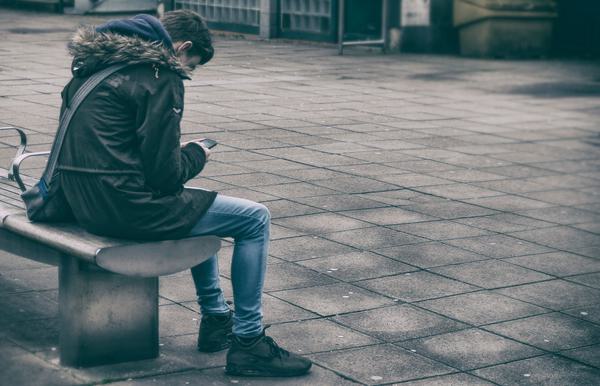Young people are increasingly struggling with social disconnection. Lucy Greenland explains why ‘drop-in’ community hubs offer a vital response to the loneliness epidemic.
Right now in the UK, young people are both totally 'plugged in' and connected online, but also disconnected from real relationship with each other. They are identifying as ‘lonely’, and struggling with anxiety and mental health issues. Poverty and lack of positive opportunities are preventing teenagers from reaching their full potential, whilst some are disengaging with their education, becoming NEET, or involved with gangs, child sexual exploitation or radicalisation.
Now more than ever, young people need real, safe and consistent spaces where they can thrive socially, emotionally and spiritually. ‘After all his years studying loneliness, John Caccioppo told me “the evidence is clear: social media can’t compensate us psychologically for what we have lost – social life.”’ (Johann Hari, ‘Lost Connections’, Bloomsbury, 2019)
Yet half our churches aren’t engaging young people, and evidence shows that the ones who are, aren’t always meeting young people where they’re at (Youthscape’s Losing Heart report, December 2016). This, combined with secular youth centres regularly closing due to funding cuts, means that young people - particularly those who are most vulnerable and disadvantaged, are being left without positive networks and support.
In this context, we need to be innovating to create positive ‘community hubs’ where teenagers can come together, especially during after-school hours. Places where they can build long-term relationships with positive role models and peers, as well as take opportunities to develop their skills and capabilities. Where they can be part of something bigger, work as a team, learn together, eat together, have meaningful conversations…and not just once a week.
"Community hubs can help to end loneliness, anxiety and low self-esteem if they are able to set positive culture and clear boundaries. Consistent relationships built on trust and respect change us positively...barriers are broken down, needs are met, and young people begin to thrive."
We need to be infiltrating the lives of those who need love the most - particularly those on the ‘fringes’ or who feel disconnected. Because ‘humans need tribes as much as bees need a hive’ (Johann Hari, 2019). Community hubs can help to end loneliness, anxiety and low self-esteem if they are able to set positive culture and clear boundaries. Consistent relationships built on trust and respect change us positively. By regularly spending time in a loving community (e.g. an after school ‘drop-in’), barriers are broken down, needs are met, and young people begin to thrive. But in order to enable this change, community hubs need a few key ingredients.
- Inclusive and welcoming. It’s not rocket science, but in a climate of disunity, we need to be living in a radically hospitable and kind manner, and demonstrating this to young people. Build relationship first, before anything - remember names, greet young people with a drink, invite them into activities, forgive them when they mess up etc.
- Clear boundaries and expectations. Communicating these when young people first arrive, as well as treating them with respect, cultivates trust and enables us to manage behaviour in a relational way. Work alongside a young person to help them return to the community wherever possible, even if their behaviour is challenging.
- Consistent and sustainable. Evidence shows that young people need a place to belong to, where they can develop lasting and positive connections on a regular basis (Dame Louise Casey DBE CB, The Casey Review, December 2016). Especially for those whose lives are more chaotic or unstable. Aim to always do what you say you’re going to as part of this - staying open, running activities etc.
- Responsive and supportive. As we get to know young people, needs will emerge that require more specific care or signposting, and new ‘offshoot’ projects should develop to tackle these more effectively and ensure young people don’t fall between the gaps.
With 13 years of experience running daily ‘drop-in’ communities between them, Lucy Greenland and Andy Gill founded Relational Hub in June 2018 to help churches and youth projects develop innovative, after school ‘drop-in’ hubs for vulnerable young people to belong to. You can read about Youthscape's Luton-based drop-in, as well as OpenHouse – our pioneering program designed to help people deal with feelings of isolation – by following the links below.






